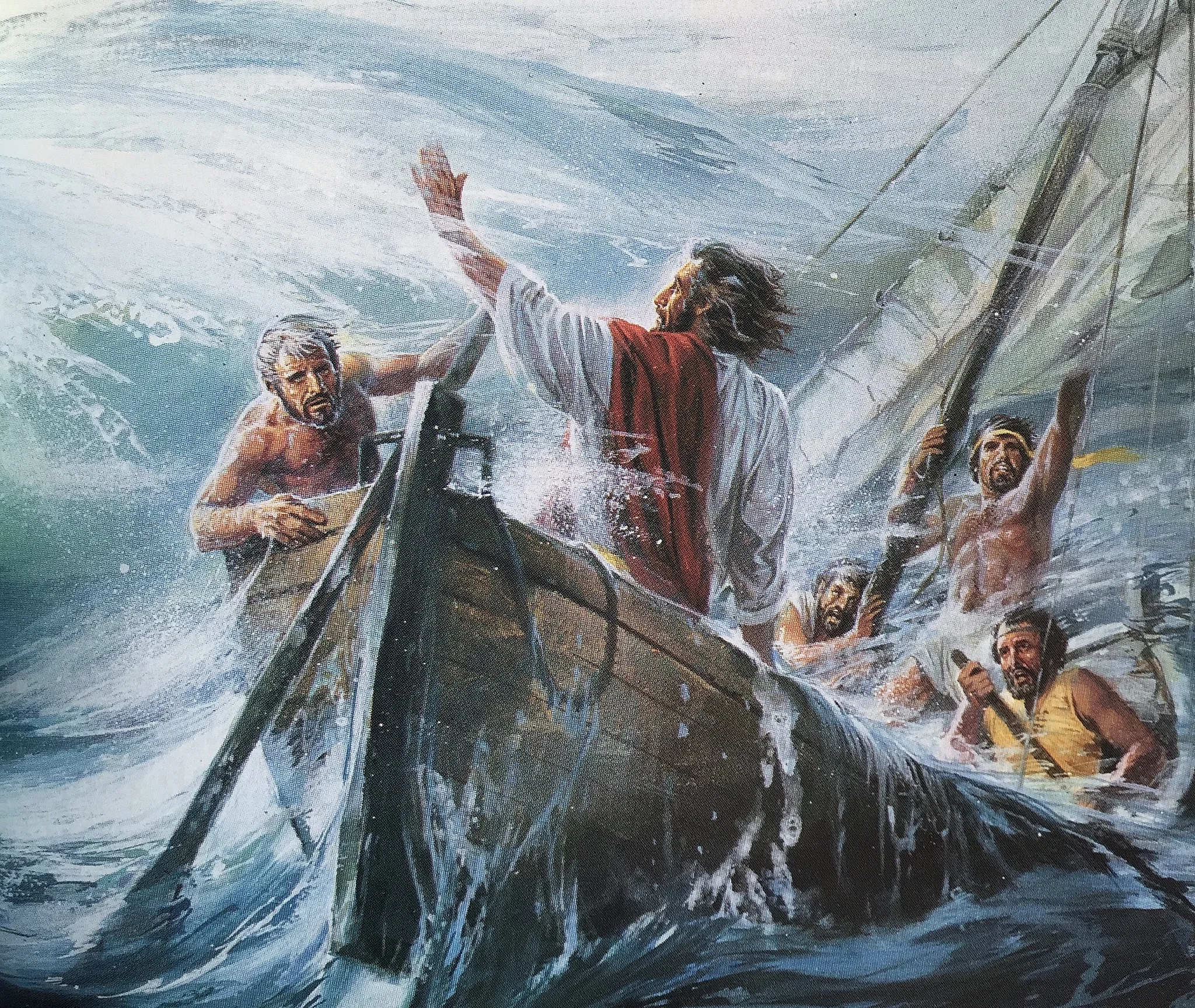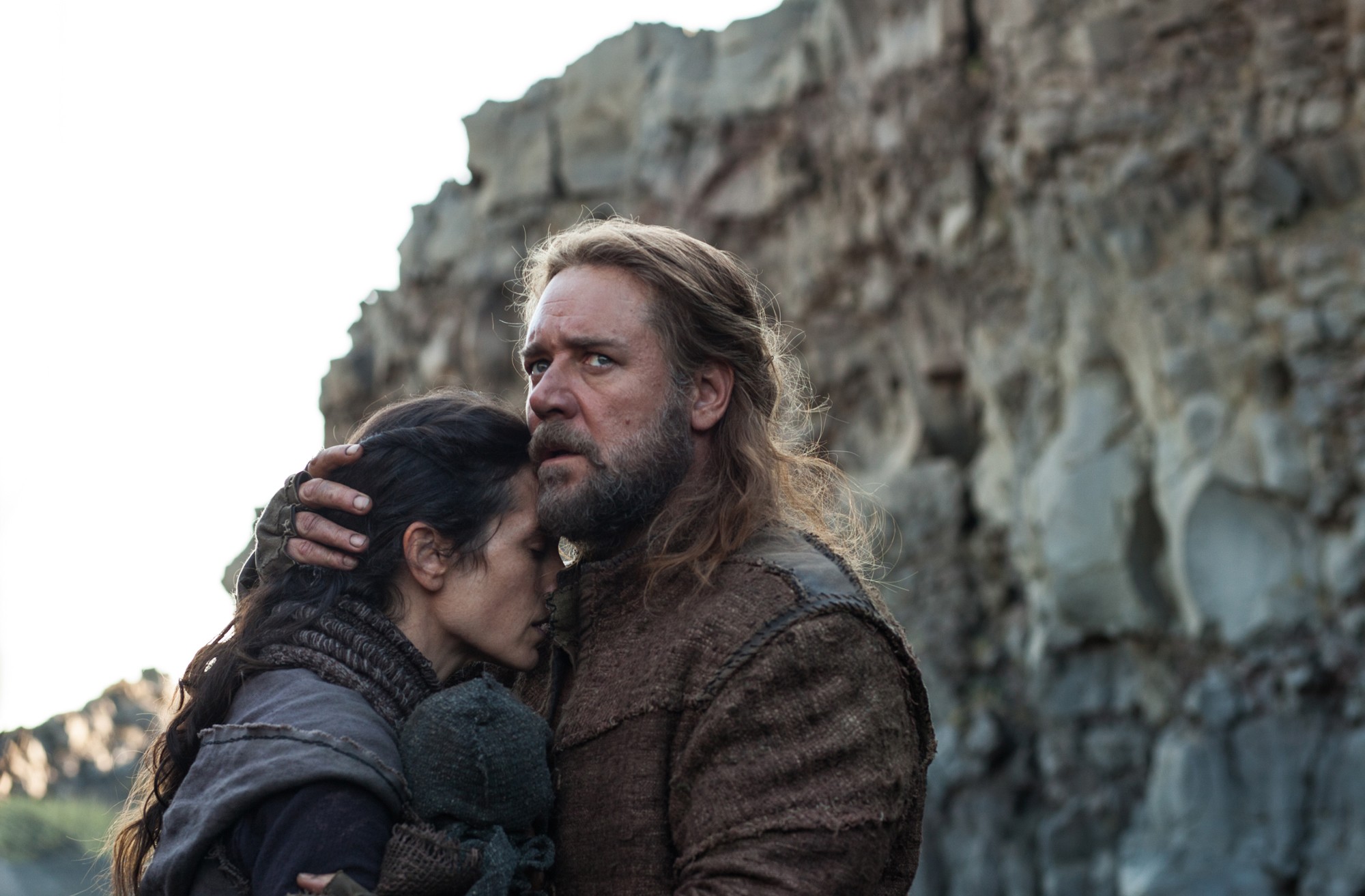Canvas Conference 2016 and the corresponding Creativity & the Christian Course was an extended weekend of teaching on the relationship between creativity and theology, and a chance to interact with Christian creatives who have thought deeply on this subject. I came prepared, having expressed in a previous essay my own understanding of the Bible's view of art and beauty, along with questions I was seeking to explore further. This new essay is a chance to articulate how this conference has clarified my thinking, along with its implications for my life.
Theological Clarifications
First, I've better understood how God is the source of all beauty. Art Azurdia's sermon on the vision of God's glory, portrayed in Revelation 19, rekindled a view of God as the source of all power, lacking in nothing and foolish to reduce in our thinking. In light of this vision, our own elevation of ourselves and our abilities is as pathetic as the attack of idol worshippers in Isaiah 44. My idolatry is a self exaltation that is abhorrent in light of the excellence of our King.
A rewritten Christian Aesthetic Declaration would also expand on the effect that the fall has had on our nature. Prior to this event, humankind was united to God and thus at whole with itself. When this changed, what was once united is now shattered. The former wholeness of our mind, heart, spirit, and body, each working together to understand and serve God, was ripped apart, causing frustration and pain to this day. We see effects of this dichotomy in our debates between valuing the "head or the heart" in our worship of God. When we neglect the creative spirit, or when we refuse to engage the mind in thinking about God, our understanding of who God is will be damaged as a result. Christ is the New Adam (See 1 Corinthians 15:21-23), the very image of the invisible God (Colossians 1:15). He restores this wholeness that sin tore apart. By being united with Christ, we are being restored back to the whole man that God created us to be. By worshiping God in spirit and in truth, in creativity and in knowledge, in beauty and in thought, we better reflect the God who formed us in our image.
The value I placed on Christ's role in redemption and our creativity has also been expanded. Our Master's use of storytelling and imaginative smilies when teaching, combined with his exquisite intelligence and understanding, give us a clear picture of what this unity looks like in God. Jesus is also the Word of God. No better word has come to us and we should expect nothing more. As Christians, we are priests who point to Him. But like Aaron before the Hebrews, the people demand something else. Our tendency is to give in and offer our own art in replacement, like Aaron and his golden calf (Exodus 32). We must understand that as priests, anything that we divert people to instead of Christ will have no saving power. Our role is to simply exalt Him.
Although my Declaration discussed the infinite beauty of God's Creation, it did not place proper emphasis on the most beautiful of God's acts: His redemption. Aaron Ivey's talk on 'God as the Artist' had me wondering; do I prize God's redemption above all other forms of beauty? We, the redeemed, are in a unique position to honour and celebrate this exquisite beauty. Just as artists have yet to exhaust the complexity and beauty of the human body, so our art should find unending ways to explore and enjoy this redemption, the greatest art of all. Furthermore, as Christians we have access to the source of all Beauty. Our lives are being transformed as part of the beauty of his redemption. Since our hearts are charged, our lives are a work of art, a beauty that will overflow into everything we do. Some days it can be hard to believe that this beauty is ever visible in our lives, but the best of art takes years to reveal itself and can be the hardest to recognize. Our Gardener's orchard will bear His fruit on His timing, not ours.
Finally, the discussion with Randy Alcorn on the nature of creativity in the New Heavens and the New Earth has me even more excited for our destination. In my Declaration I talked about how in Heaven we will create art for the glory of God without the constraint of sin, but I hadn't imagined what the lack of limitations would mean for our artistic creations. Many masters achieve their greatest masterpiece towards the late middle of their career, before the limitations of the aging body, mind, and eventually death hamper their work. Imagine what they could create as their understanding and craft grows as they go on further and further into eternity! Sin, and the effects of evil and wrong will be conquered, so the pettiness and lack of motives preventing open collaboration will be removed as well. This enjoyment of the new creation and our role in creating it will only increase our worship to its Source and Author.
Randy Alcorn also described how the new Jerusalem is brought "down out of heaven from God, prepared as a bride adorned for her husband" (Revelation 21:2, ESV). It is a new heaven, but also a redeemed earth. Much like Aslan's Country in C. S. Lewis's The Last Battle contains the good of England that can never be destroyed, it is easy to suppose that the best aspects of our current world will be redeemed and become part of the New Creation. This frees us from having to squeeze out any last drop of enjoyment of this current world before it all gets tossed aside. It also gives us hope that the good of our current creativity will be carried forward into the next. Our efforts at producing quality artwork will have an far reaching impact, going beyond our short lifespan or the life of our planet. (I think Tolkien's autobiographical short story, "Leaf By Niggle", hints at this idea. In the story, the painter's unachieved masterpiece gets little appreciation after its artist died, but in the afterlife, his work, while still being the work of Niggle, is transformed into something with far reaching impact.)
Personal Implications
It was illuminating to hear how the artists at the conference achieved balance in their creative processes. Bret Lott told us how he begins his morning writing session by praying Proverbs 16:3 ("Commit your work to the LORD and your plans will be established") and Psalm 90:17 ("Let the favour of the LORD our God be upon us, and establish the work of our hands"). During lunch, I asked Ekemini Uwan how she manages the incessant noise of her significant social media output. She told me that she begins each day with prayer, ignores Twitter on Sunday, and allots only specifics times for responding and posting.
As long as the church has existed, it has encouraged the spiritual disciplines. When I'm at work on something artistic I tend to invest my entire energy in it, barely leaving time to eat. At the root of this is a fear of failure. I don't want to rest from my work until I trust that I have left something of value. The discipline to take of taking regular time away from the craft in order to meet with God and serve other people is a way of trusting God, showing Him that your identity is not wrapped up in the success or completion of your work. And it is this vision of God's beauty that we gain from time in prayer and the Word that should, as Art Azurdia declared, "compel and control our creativity". He is the source of beauty. Let us take time to connect to Him.
This also applies to how we consume media. How do we avoid the subversive messages that creep under our skin through media, culture, and stories? The spiritual disciplines reshape our souls on a daily basis with a power greater than that which is in the world. Mike Cosper told us that "to become a Christian is to adopt a way of life that reorients you to the Kingdom of God." It means resisting passivity and making decisions that will alert us to the spiritual realities in our lives. Then our art creation and consumption can become a sort of spiritual discipline, a way of paying attention to the world and communing with God. The habits of creativity are also important, including community we keep ("have intelligent, good, honest people around you" directed Bret Lott) and how often we spend time away from our screens (Latifah Phillips encouraged us to seek the company of others and spending time with hobbies that involve the physical, such as gardening.)
This leads us into my questions about the role of the local church in a believing artist's life. Although I saw churches in Portland who are very intentional about how they display creativity and disciple the artist, they explained that this focus is an organic response to the makeup of their city and congregation. A locale that does not have such a high percentage of artists will naturally look quite different. But regardless, the focus of the church should be on "creating healthy Christians over healthy artists" ( in the words of Thomas Terry). As another speaker put it, "the church does not exist to serve artists. Rather, artists exist to serve the church."
Think of Jesus Christ, whose beauty and creative power is the root and cause of all our creativity. He came to earth in the humblest of all forms, taking the lowliest of lives and dying in the most humiliating way imaginable (See Mark 10:43-45 and Philippians 2:3-8). If we are to "have this mind among us", let us serve our churches - through art, if need be, but first through whatever need the church has, from the nursery to its janitorial closet.
Reflecting on encouraged me this week, as last Sunday I returned to my church home after being away for three weeks. I had spent most of my time in Portland observing churches with excellent music and who pay careful attention to their aesthetics. I was worried and slightly embarrassed to return to my humble church, with its sloppy approach to design and visuals and a music team in disarray. One of the most talented musicians in our church, who lead my band had just had moved out of town. My current music team was the lowliest and most awkward in the church. I realized that my attitude stepping into this new environment should be to serve with my gifts in wherever way is most needed by that congregation.
The other night, I told my former bandmate this decision over the phone. He agreed, but he also encouraged me to keep practicing so I could eventually serve the church by leading my own band. This leads me to the final lesson I learned about creating art at Canvas: create good art by working hard to develop your craft. Most artists who do this have a motive of self-glorification. As believers, we shun laziness by recognizing that we, of all people, know the Source of Beauty Himself and should reflect this beauty in our art.
My creativity is a gift given to me by my Creator. As a steward of this gift, I am to work at improving it, but I also need to recognize that this gift is not given to me to horde, or as a means to magnify myself. Worshiping myself and my gift will never bring me true lasting joy. Only worshiping the source of joy and gifts will secure that. I am also humbled by recognizing that none of us, not even artists of the highest genius, create out of nothing. We only mimic, copy, and rearrange existing stories, patterns, and designs. It's all been done before, and better, by the Fountainhead of all new things. He invites me to sing along, out of tune and incomplete, but being restored into the perfect image of His Son.







